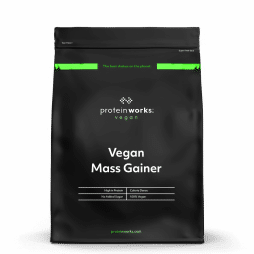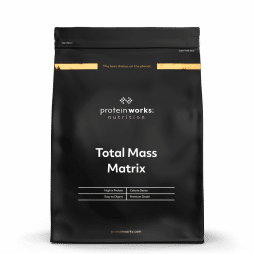
How Long Should you Bulk For?
Building muscle is a marathon, not a sprint. Admittedly, an odd metaphor considering long distance running is likely near the bottom of your list of things to do when you’re looking to bulk up, but it’s true nonetheless.
So, you’re not going to suddenly build muscle overnight after one session at the gym – no surprises there – but just how long does it take to build muscle and complete a successful bulking phase?
Well, despite what fitness magazine covers may want you to believe, building a physique that wouldn’t look out of place in a Hollywood superhero movie, isn’t going to happen in a matter of 6 weeks. Realistically, it will be more like 6 months…minimum.
But the question remains, how long should you bulk for? Find out below…
Types of Bulking
The duration of a bulking phase can vary depending on individual goals, preferences, and how your body responds to the process. Here are some general guidelines to consider:
1. Short Term Bulk (4-8 Weeks):This is a relatively brief bulking phase, often used by individuals looking to make rapid strength and muscle gains for a specific event or goal. It can be effective for jumpstarting progress, but it’s important to transition into a maintenance or cutting phase afterward to manage body fat levels.
2. Moderate-Term Bulk (3-6 Months): This is a more extended bulking phase that allows for significant muscle growth. It provides ample time to make substantial progress while still being mindful of managing body fat levels. This duration is suitable for many individuals and provides a good balance between muscle gain and fat control.
3. Long-Term Bulk (6-12 Months or More): Some individuals may opt for a more prolonged bulking phase, especially if they are starting from a leaner physique or have specific goals for significant muscle growth. However, it’s important to monitor body fat levels and consider intermittent maintenance or cutting phases to prevent excessive fat gain.
4. Continuous Lean Bulk: This approach involves maintaining a slight caloric surplus (typically around 250-500 calories above maintenance) for an extended period, often for a year or more. The goal is to steadily gain muscle while minimising fat gain. This approach requires close attention to nutrition and training to strike the right balance.
What makes your body build muscle?
What ultimately makes your body build muscle is “damage” and rest.
If you want your muscles to grow, then you need to give them a reason to.
Through your training, you need to damage your muscles, by placing them under stress they haven’t yet adapted too, which causes micro tears within the muscle fibres. It is by creating these micro tears that will lead to muscle growth.
However, creating micro tears is only half the equation. In order for you body to build muscle, you need to give them ample time to rest and recover, so that your body can get to work on repairing the structural damage caused to your muscles, which is what makes your muscles larger over time.
Rate of muscle growth
How long it takes you to build muscle, will depend on, well…you.
The rate of muscle growth will differ from person to person as it depends on individual factors such as your age, gender, hormone levels and overall genetic code, as well as your training history, calorie intake and current training schedule.
This is why some people seem to build muscle simply by stepping foot inside a gym, whilst others seem to struggle through years of hard training to see only the smallest amount of progress.
For someone with a strong genetic make-up, ideal for building muscle, then a growth of 2 pounds per month could be expected. For everyone else, it would be a little less – around 1 pound per month.
Focus on what you can control
Whilst we can’t do anything about our genetics, there are a few variables we can control that will help speed up the process of packing on muscle mass.
Making sure you have a well-structured training programme that has you hitting a muscle group twice per week and incorporates progressive overload will be vital to ensure you are creating the micro tears in your muscle fibres that are needed to prompt growth.
Make sure that in each session you are either increasing your weights, increasing reps/sets or decreasing rest periods to keep your muscles growing.
Of course, in order to bulk up, you will also need to ensure you are consuming enough calories to create a calorie surplus and give your body the extra energy it needs to repair and grow muscle tissue. On top of this, you’ll need to keep your protein intake high, around 1.5 -2grams per KG of bodyweight for optimal muscle building results, as well as staying well hydrated throughout the day. Our mass gainer is a quick and easy solution to ensure you’re consuming enough calories on a daily basis in a healthy way.
Lastly, you just need to be consistent.
Building muscle takes patience and perseverance, but stick with it long term, and gains will come your way.
The Take Home
It’s crucial to emphasise that the decision of how long to bulk should be based on individual goals, preferences, and how your body responds to the process. Regular monitoring of progress, including tracking measurements, body composition, and strength gains, can help inform adjustments to your bulking strategy.
Additionally, periodically incorporating maintenance or cutting phases within a longer bulking period can help manage body fat levels and optimise overall progress.
Ultimately, consulting with a fitness professional or registered dietitian can provide personalised guidance and help create a bulking plan that aligns with your specific goals and needs. They can also monitor your progress and make adjustments as necessary to ensure you’re on track to meet your objectives.









No Comments yet!